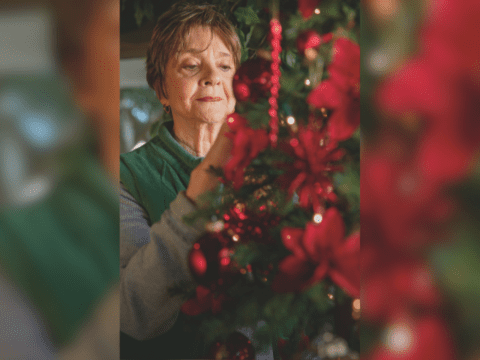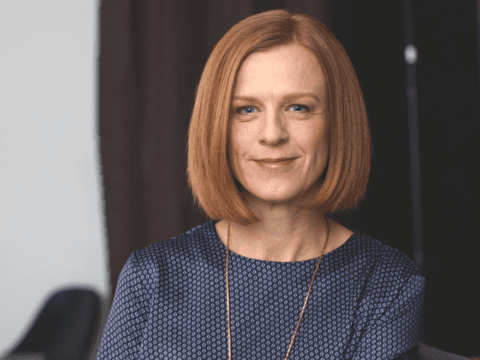When I first started coming back to church in my mid-20s, it was the first Sunday in Advent, and the minister in my congregation was preaching about the potential for change. She said that because we live through this story every year, we knew the change was coming in the arrival of the Christ child, but that the change wasn’t here — not yet.
This year, one of the texts for Christmas is Psalm 96. The opening words from the Psalmist call us to “Sing to God a new song! Sing to God, all the earth… for great is God and greatly to be praised.” We are called to prepare for this change by praising God in glory.
You may unsubscribe from any of our newsletters at any time.
This anticipation about change is how I feel about The United Church of Canada these days. While we navigate many changes, a broader change is on the horizon, guided by the church’s new call and vision. But it’s not here — not yet. While change can feel uncertain, I see the possibility of it unleashing all kinds of new creativity in ways that make me very hopeful. Some urban congregations are experiencing hopeful rates of renewal and growth. Rural networks face difficult challenges as the urbanization of the country continues, yet many are also responding with creative and collaborative approaches.
I have often shared the story of Benjamin Zander, conductor of the Boston Philharmonic and faculty emeritus at the New England Conservatory of Music. Many of his students struggle with perfectionism, and he witnessed how this became one of their biggest obstacles to playing beautiful music well. So he encouraged them to try something new. When they made a mistake, instead of hanging their heads in defeat and clenching their bodies tightly in disappointment, he asked them to throw up their hands in the air and with a smile say, “How fabulous!”
More on Broadview:
He knew, as many other creatives and innovators know, that you can’t make something beautiful without learning from mistakes.
Not all the initiatives and plans we have across the church will succeed, and that is fabulous. I see the call and vision of the church — to be a church of deep spirituality, bold discipleship and daring justice — rippling out through our communities of faith. This tells me we landed on some important words in terms of who we are as a denomination. They are specific and tangible, but also broad enough that each individual ministry can spend some time discerning the questions: “what does that look like here? What change is coming? What change isn’t here yet?”
What I see is a church that is alive and doing God’s work in and with the world. And that happens best when we are living not just with each other, but for each other. When I was the executive director at First United Church Community Ministry Society, I stumbled across an amazing saying that changed my life as a leader in so many good ways: instead of saying, “All are welcome here,” we said, “This was designed with you in mind.” This means rather than welcoming others to come and be comfortable where we are, we are anticipating who isn’t in the room, who could be in the room and what they would need to be comfortable and welcomed when they get here.
Does your church building have an accessible entrance and restroom facilities? If the answer is “No, but we don’t have anyone who needs that in our congregation,” then you’re not saying, “All are welcome here.” You haven’t designed with those with mobility challenges in mind. That’s one example, and I realize there are very real constraints regarding capital budgets and local codes and heritage rules — but don’t lose the forest for the trees. The idea is to consider “Who is my neighbour?” and then to determine if I have done everything I can to live for my neighbour and their needs, not just invite them to come and do what I like and how I like it.
Across this church from coast to coast to coast, we have been getting better at saying, “All are welcome here.” Forty years ago, and beyond, that was radical. I firmly believe that when you know better, you do better. With this reframing in my mind, I can’t see the world another way.
In the past decade, one of the biggest critiques of our denomination is that when people walk through our doors, they don’t meet the welcome and inclusion they heard us speaking about online or in print. I know from experience this is true. Someone once tweeted at me, “The United Church of Canada left God a long time ago, and is now just a glorified social club.” Of course, they’re wrong: our ministries are full of folks who are deeply faithful. But sometimes I see shreds of truth in that statement. And for me, it comes down to Christian formation and discipleship.
As communities of faith, we focus a lot on spirituality and justice. We have worship that explains and represents our theologies well, and we are good advocates against systems of injustice that continue to marginalize others and the planet. The biggest growing edge I see for us as a church is the idea we named long ago in A New Creed: to celebrate God’s presence. I don’t often see us thinking about where God is in our daily lives and in the lives of our neighbours. What would God have me do? Who are the neighbours that God has blessed me with? Do I know them well enough to pray for them?
The German Lutheran theologian Dietrich Bonhoeffer was one of the founders of the Confessing Church, a movement that resisted Adolf Hitler’s attempt to create a unified, pro-Nazi Protestant church in Germany. His works are well read, especially his writings on defining “costly solidarity.” But one of my favourite Bonhoeffer books is a little volume called Life Together. As part of the theological education for the Confessing Church, he encouraged faculty and students to live together in radical witness to the tradition of being in Christian community. He required students and faculty to know each other so well that the intercessory prayers of one were adopted by the others. He said there was a difference between living with each other and living for each other. When I know you well enough to say what weighs heaviest on your heart, I will pray for what matters to you as if it’s my own prayer. We do this because of our commitment to God and because we are saved by Christ alone. So what I’ve received from Christ, I will also freely offer to my neighbour.
This is a radically different life than simply worshipping together. The communities of faith I see thriving are the ones who live for their neighbours and do it well.
There is a particular section in Psalm 96 that speaks to me from this context of anticipating change and living to the glory of God:
Ascribe to the Lord, O families of the peoples, ascribe to the Lord glory and strength.
Ascribe to the Lord the glory due his name; bring an offering, and come to the courts.
Worship the Lord in holy splendour; tremble before him, all the earth. (Psalm 96:7-9)
What a beautiful way to talk about God-centred discipleship. We trust that on the cusp of the arrival of the Christ child, we can come together recognizing the strength and glory of the Holy One, bringing ourselves and all we have to offer, worshipping God.
Friends, this Christmas I wish for you steadfastness in faith, dedicated formation as disciples, and an ability to envision and create the community your neighbours need — all to the glory of the Christ child whose arrival we await with awe and anticipation. Because the transformation brought by the triune God is steadfast and always present with us, at Christmas and every day.
***
Rt. Rev. Carmen Lansdowne is The United Church of Canada’s 44th moderator.
This article first appeared in Broadview’s December 2024 issue with the title “The Change Not Here Yet.”













